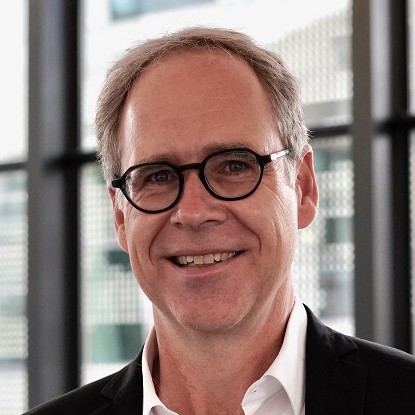Dr. Mario Gómez Ramos
My field of research is fascinating. The best way to explain it to non-specialists is…
Nuclear reactions are nucleus on nucleus collisions, and a joke says that studying them is like getting the layout of a house by shooting it with a cannonball and looking at the debris. I like it because it reflects how messy nuclear processes can be. However, with the proper insight one can learn about the reaction mechanism and the properties of the involved nuclei, so nuclear reaction theory helps study the nucleus as well as other fields like astrophysics, or nuclear energy and medicine.
What research questions are you currently working on?
I am now studying (p,3p) reactions on exotic nuclei. In these reactions, a beam of exotic nuclei, which only last a few seconds at best, collides with a proton target, and then two protons from the nucleus are ejected, so at the end 3 protons are going out (these two and the target). What I want to understand is how this happened: did the proton target hit a proton twice? Were the two protons in a pair and we kicked the pair? And how does this change when the nucleus is more and more exotic?
My most important success in research to date is…
certainly not only mine, as all of my successes are thanks to my wonderful collaborators. Since I defended my PhD thesis last year, I would say its subject is my main success: describing (p,2p) and (p,pn) reactions. They are like (p,3p) but you only kick out one proton or neutron from the nucleus. They have been on the spotlight recently as it is not clear that they are well understood when looking at very exotic nuclei, and there are still some questions that maybe (p,3p) can help answering.
What innovative developments are you expecting in your field of research in the next few years?
Nuclear physics is very experimentally driven. As radioactive beam facilities improve, new exotic nuclei become available for experiment, and it is a push for us theorists to describe them. Actually, GSI (the radioactive beam facility in Darmstadt) is now embarked on its upgrade, so in a few years it will start producing new very interesting data. And there is also RIKEN in Japan, and ISOLDE in CERN, there won't be a lack of work for us.
Questionnaire for the host
Guest of: Prof. Dr. Alexandre Obertelli
Department: Institut für Kernphysik, Physics department
What would you say you appreciate most about your guest or what made the most favourable impression on you…
Dr. Gómez has an open mind and is creative. He approaches new problems with enthusiasm. Doing physics with him is a real pleasure and, after a month, we already have three joint projects in mind.
You, your team and the TU Darmstadt benefit from your guest’s …
Dr. Gómez has a strong expertise in modelling specific nuclear reactions which are important to understand the reaction mechanism and to interpret nuclear experiments with radioactive beams that we perform at GSI/FAIR or RIKEN. His expertise is complementary to the aspects of nuclear physics covered at the IKP. We are very glad that Mario Gómez chose to develop his theoretical research in our experimental group. This daily interaction between experiment and theory will be highly profitable to all of us. We are excited to have him at the Institut für Kerphysik.







